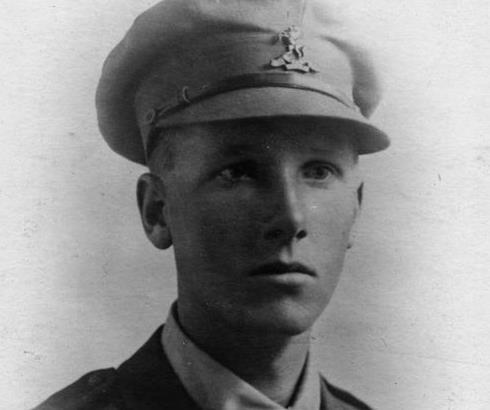20 September 2018
Sidcup First World War hero remembered

To mark the end of the First World War Centenary, the Commonwealth War Graves Commission (CWGC) has launched its “Road to Peace” project.
- The Commonwealth War Graves Commission is marking the end of the First World War Centenary with 120 personal stories of those who made the ultimate sacrifice in the last months of the war.
- The CWGC commemorates a staggering 120,000 men and women who died between 8 August and 11 November 1918.
- The stories have been compiled by the CWGC’s team of historians and includes the remarkable account of Lieutenant Vivian Sutton, a First World War hero from Kent. During his service Vivian fought in many key battles across the Middle East and Europe.
Born in Sidcup Kent, Vivian volunteered for active service aged 18 joining the Honorable Artillery Company in 1914. He served in Ireland and was present during the Easter Rising of April 1916, a pivotal event in modern Irish history. In May 1916, Vivian and his unit returned to the UK and joined the newly raised 60th Division of Salisbury Plain, leaving for the Western Front soon after in June.
Vivian’s time in France was cut short and after only five months his unit was sent to Salonika in Greece. In April 1917 he saw his first real action during the Battle of Doiran, where British soldiers attacked heavily defended Bulgarian positions and suffered terrible losses.
Remarkably, Vivian came away unscathed from his baptism of fire. In June his unit was again ordered to embark, this time bound for Egypt. While in the Middle East he and his comrades took part in the British advance through Palestine, which ended with the capture of Jerusalem in December 1917, a momentous victory for Allied troops.
Vivian’s is one of many forgotten stories of men who faced mortal danger during the First World War far from the Western Front in France and Flanders
Following the capture of Jerusalem, Vivian was given a battlefield commission and promoted to Second Lieutenant. He was assigned to a new unit which was based in France and he joined them just as the 100 Days Offensive on the Western front began.
After years of war, Vivian was now a veteran soldier, but sadly he would not live to see the final Allied victory. After fighting through the Battle of Scarpe, his battalion attacked and captured a German position near the French village of Havincourt. During the battle, Vivian was killed. He was just 22 years old.
The Adjutant of his unit, wrote “He had not been with us very long, but in a comparatively short time, he had endeared himself to everyone. Always willing and cheerful, the Commanding Officer had a great idea of him, and expected great things from him. It came as a terrible blow to hear of his death. It is hard for me to say what so many of us feel.”
Vivian was laid to rest in the CWGC Ruyaulcourt Military Cemetery. Upon his headstone, are the words chosen by his parents “Greater love hath no man than this”.
From famous casualties like war poet Wilfred Owen, through to relatively unknown individuals; from those dying in battle to those who died of Spanish Flu; each story has been carefully chosen to shine a light on the human stories on the costly Road to Peace.
CWGC Historian, Max Dutton, explained: “Behind every one of our headstones or names on a memorial to the missing is a human story just waiting to be told. Our 100 Days “Road to Peace” campaign will remind people of the human cost of the Great War, the sheer diversity of those who took part and the global nature of that sacrifice and remembrance today. We hope Vivian’s story will inspire people to find out more about him and his comrades commemorated by the CWGC and visit their graves and memorials.”
From 8 August – the 100th anniversary of the Allied victory at the Battle of Amiens – the “Road to Peace” campaign will conclude on 11 November with the stories of 11 people who died on the very last day of the First World War, even as the guns fell silent. The “100 Days” is a term applied to the final period of the First World War, during which the Allies launched a series of offensives on the Western Front that ultimately led to peace. Not actually 100 calendar days, the term is a reference to the final period of the Napoleonic Wars.
The Road to Peace stories will be shared across the CWGC’s digital channels on Facebook, Twitter and Instagram. A story will appear every day – with a more in-depth feature appearing weekly.

